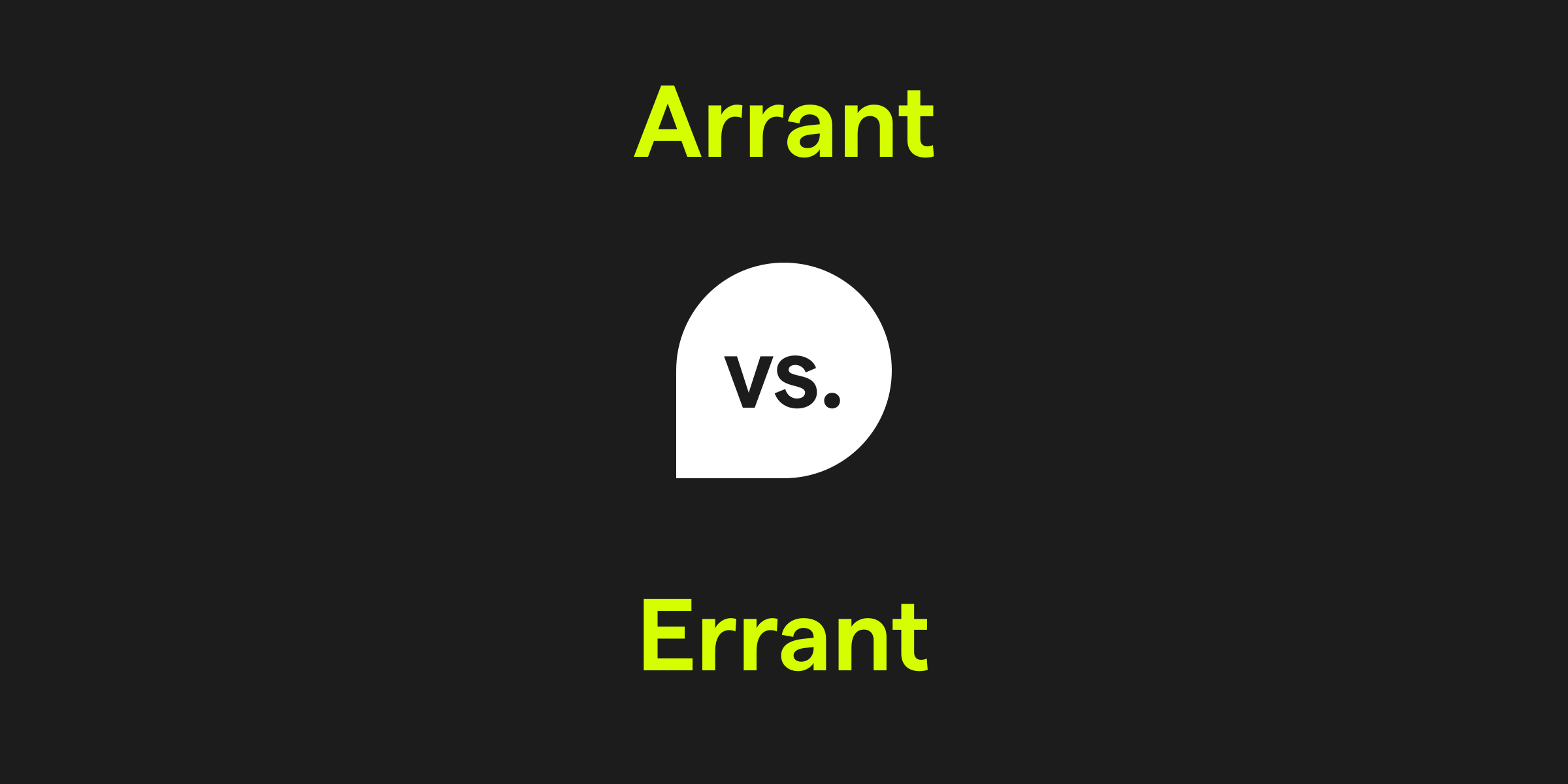Arrant vs. Errant: What's the Difference?
Although they may sound similar, arrant and errant convey distinct meanings. Arrant is an adjective that intensifies the negative connotation of a noun, often used to describe something as thorough or utter. It usually precedes terms relating to undesirable behavior or qualities. In contrast, errant also an adjective, typically describes something or someone that is wandering or straying from the accepted course or standards, often used in a less severe or more adventurous context.

How do you use the word arrant in a sentence?
The word arrant is best utilized to emphasize the extremeness of a negative trait. It is often paired with nouns representing undesirable characteristics to convey complete and utter expression of that trait. It effectively strengthens the negative connotation of the term it modifies, and its usage is predominantly found in literary or rhetorical contexts to deliver a powerful impact.
Examples of arrant in a sentence
- He was described as an arrant fool, incapable of making a wise decision.
- The article exposed the politician as nothing more than an arrant hypocrite.
- Such arrant nonsense has no place in a serious academic discussion.
How do you use the word errant in a sentence?
The word errant is commonly used to describe someone or something that deviates from a set path or norm. It often carries a connotation of wandering or roaming, sometimes with a sense of misguidedness or error. The term can also imply a romantic or chivalrous notion of adventure, as seen in historical references to 'knights errant.'
Examples of errant in a sentence
- The errant knight ventured into uncharted territories, seeking adventure and glory.
- Her errant ways led her away from the path to success and stability.
- During the soccer match, an errant pass led to a goal for the opposing team.
Arrant and errant definition, parts of speech, and pronunciation
Arrant definition:
Arrant is an adjective describing something in its worst or most extreme form, often used to emphasize complete and utter reprehensibility.
Arrant parts of speech:
Arrant pronunciation:
Arrant is pronounced as "/ˈær.ənt/".
Errant definition:
Errant is an adjective meaning straying from the proper course or standards, or roaming in search of adventure.
Errant parts of speech:
Errant pronunciation:
Errant is pronounced as "/ˈer.ənt/".
Arrant is an adjective describing something in its worst or most extreme form, often used to emphasize complete and utter reprehensibility.
Arrant parts of speech:
- Adjective: Arrant is typically used as an adjective. For example, 'His claims were dismissed as arrant superstition.'
Arrant pronunciation:
Arrant is pronounced as "/ˈær.ənt/".
Errant definition:
Errant is an adjective meaning straying from the proper course or standards, or roaming in search of adventure.
Errant parts of speech:
- Adjective: Errant is commonly used as an adjective. For instance, 'The errant student often missed classes due to his wandering habits.'
Errant pronunciation:
Errant is pronounced as "/ˈer.ənt/".
Arrant vs. errant in a nutshell
To distinguish between arrant and 'errant,' remember that arrant emphasizes the extreme negative aspects of something, akin to saying 'thoroughly bad.' On the other hand, errant often describes a person or object that strays from the accepted path, potentially losing their way or engaging in a noble quest. Although both adjectives, their applications differ greatly—one describes degree of negativity, and the other a type of behavior. The next time you encounter these terms, consider the context to determine which word is appropriate for reinforcing the intended meaning.
Get AI Writing Assistance Wherever You Type
Make sure your vocabulary is on point and every punctuation mark is in the right place, no matter where you’re working. Grammarly works across more than 1 million websites and apps so you can improve your writing without copying, pasting, or breaking focus.

More Commonly Confused Words
Interest piqued? Pore (not pour) over other commonly confused words to help your writing reach peak (not peek) performance.